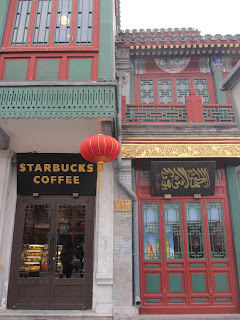The Genocide
WARNING: The following post is heavy and graphic.
I recently spent three days in Rwanda. My experience was intense.
In Nyamata, a small dusty town 25km outside of Kigali is a church. There, in 1994, over 2,000 Tutsis were told to take refuge by pastors and political leaders from the encroaching genocide. They were told that there they would be safe. But, this gathering was used as a convenient means by which to come and one by one kill them all with machetes inside the church.
People in Rwanda refer to life before the genocide as just "BEFORE." The memorial left the clothes of the victims on the pews and the bullet holes and everything – all there and intact. The glass windows were broken; the door locks were blasted through. The church is just still - there is no smell, there is air, but no wind. The dust of 20 years has settled on everything.
There are mass graves behind the church. As I walked to the graves, the only person I saw was a woman sweeping the top of the graves with a large bush-broom. She didn't say anything, she just pointed that I should down -meaning that I should walk down into the tomb. You can see the skeletons of the victims with machete cuts and bullet holes in the skulls.
Back in downtown Kigali you are confronted with an extraordinary sight - everything is really clean. The motorcycle drivers wear helmets, there are paved roads, stoplights, people use turn signals. And yet, there is something eerie about this sterility.
There, the memorial talked a good deal about Belgian influence in Rwanda as dividing up ethnic groups when they were sent there by the League of Nations in the1920s and how the "aid" that was given was a catalyst to the war. Then, the memorial also emphasized the absence of retroactive action in the genocide. 5,000 troops were all that was needed to stop the genocide. 5,000 troops were sent to evacuate all the development workers there, and they did little else.
Regardless of any political persuasion, regardless of my feelings on development, or my feelings on retroactive intervention – it is really hard to see this church…to be in this church and think objectively about any duty to intervene.
The hostel in Rwanda was chalked full of NGO workers, UN workers, missionaries, non-profit volunteers. All responding to some “need,” whether invited or not. A common criticism of foreign aid is that it often does more harm than good. In part, because it’s not invited or doesn’t reflect the actual needs of a community, of a country.
Reflecting on this memorial, how does one decide to give aid when it’s not asked for proactively, but when people do ask, when people beg for help, remain silent.


Comments
Post a Comment